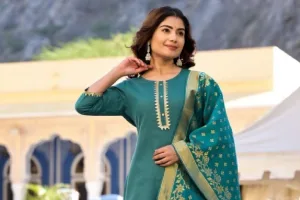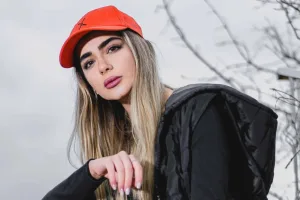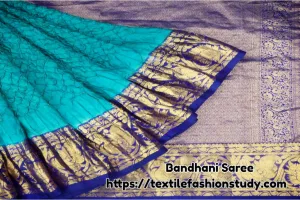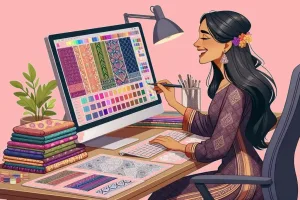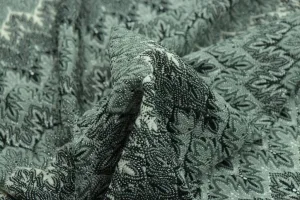Table of Contents
Cotton Fabric
Cotton fabrics, manufactured from Gossypium cotton fibers, are among the most popular types of textiles. Although cotton is one of the most popular and adaptable natural fibers in the world, several types of fabric are made from it. Essentially, cotton fibers are taken from cotton bolls, treated, and spun into yarn or thread to improve the process of making fabrics.
Cotton Fabric History
The history of cotton textiles is extensive. Beginning with its cultivation in prehistoric societies like those in the Indus Valley, it has been around for thousands of years. Cotton clothing is in high demand and has extended to places like Egypt, China, and Europe. Different cotton mills were developed in Europe and the US to support the Industrial Revolution and mass production in the textile sector. Slavery on plantations was legalized in the USA, which led to the growth of cotton as a significant export. A focus on sustainability is driving the development of various textile industries in various regions of the nation at the moment.
Benefits of Cotton Fabrics to Comfort in Life
Cotton fabric is popular with all classes of users for its comfortability and versatility. The following are the major benefits of cotton fabrics for comfort in life:
- It possesses the qualities of breathability.
- This material can wick perspiration and absorb moisture.
- It is smooth and velvety.
- It has anti-allergenic qualities.
- Cotton fabric is easy to maintain and has a long lifespan.
- It possesses the qualities of breathability.
- This material has the ability to wick perspiration and absorb moisture.
- It is smooth and velvety.
- It has anti-allergenic qualities.
Cotton Fabric Composition and Transformation
Natural cellulose fibers derived from the cotton plant make up the majority of cotton garments. A complex carbohydrate called cellulose makes up the chemical makeup of these fibers, which also contain trace quantities of waxes, pectin, proteins, and minerals.
Cotton textile transformation: A process of numerous phases is used to convert cotton fabric. The manufacture of cotton fabric happens in the order shown below.
Cultivation
↓
Harvesting
↓
Ginning
↓
↓
Weaving/Knitting
↓
Finishing
↓
Fabric/Clothing Manufacturing
In sum, the raw cotton is processed in the different stages of manufacturing, and through this process, we can get a comfortable, versatile, and durable fabric for use in our smart lives.
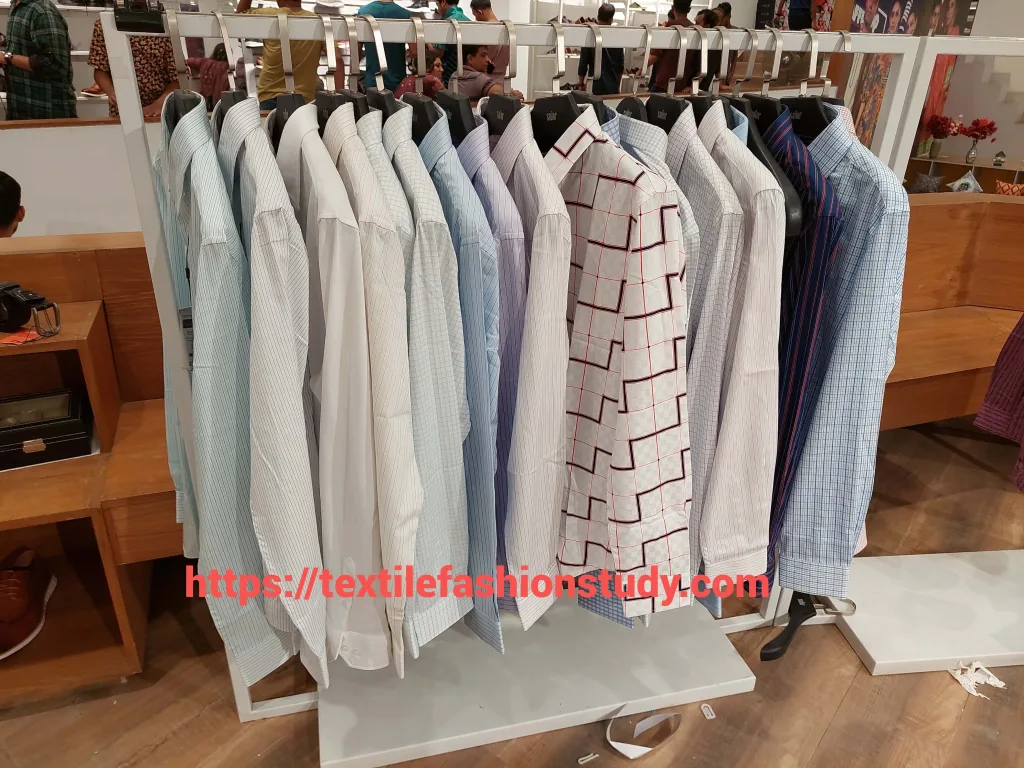
Cotton Fabric Types and Their Uses
There are various types of cotton fabric that are used in our everyday lives. So, it is important to know about different cotton fabric types and their uses. The following are the best cotton fabrics for comfort in life: They are-
- Cotton Poplin: This cotton fabric has a simple weave. Through the process of weaving, many kinds of poplin fabric are created. It is highly recognized for its finely woven structure and soft feel. In essence, it is strong and wrinkle-resistant, making shirts, dresses, skirts, and light jackets appropriate for it.
- Cotton Twill Fabric: A variation on woven design fabric is cotton twill fabric. Its texture, or pattern, is diagonal. It is strong and has the necessary capacity to resist stains and wrinkles. There are many different kinds of twill cotton textiles available for goods like work clothes, chinos, curtains, and upholstery for the house.
- Cotton Denim: All consumer classes favor cotton denim or jeans clothes and fabric. Though it is a sturdy cotton fabric that is woven in a twill construction, Primarily, denim fabric is used for making jeans, jackets, and casual wear, and it is well known for its characteristic blue color.
- Cotton Chambray: a cotton fabric with a simple weave and lightweight characteristics Although the material resembles denim, the chamber has a lighter tint and a more laid-back appearance. This fabric is used to create a variety of shirts, dresses, and skirt styles.
- Cotton Flannel: This material feels warm and cozy and gets softer after being brushed. This fabric, which is utilized especially during the winter months, may be used to create various sorts of shirts, pajamas, blankets, and beds.
- Cotton Jersey: The knitting procedure is used to create cotton jerseys. However, the elasticity and drape of this cotton fabric are well recognized. Cotton jersey fabric is used to make various t-shirts, dresses, activity wear, and other clothing items.
- Corduroy: This material is well-known for its sturdiness, softness, and warmth. But the material is a raised parallel Wales on a ribbed cotton fabric. After that, it is employed in the creation of several styles of upholstered furniture as well as pants, coats, and skirts.
- Muslin: Muslin is a cotton fabric with a simple weave that has breathable qualities. Excellent breathing characteristics make it very breathable. To make curtains, drapes, summer apparel, mock-up fabric, and pattern drafting for garments, it is typically employed.
- Cotton Terry Cloth: This type of cloth has a looped pile on one or both sides, and this fabric’s structure lends it a high level of absorption. This fabric is extensively used to create a variety of towels, bathrobes, and beachwear because of its outstanding moisture-wicking capabilities.
- Batiste: This cotton fabric has a simple weave and is semi-transparent. It is also a thin fabric that is renowned for being soft and silky. This fabric is used to create various delicate apparel items, including lingerie, baby clothes, and shirts.
- Seersucker: This breezy, light fabric is frequently used to make summer clothes. It is a cotton fabric with a puckered texture that is crinkled. From this cloth, several styles of shirts, skirts, and suits are created.
- Cotton Sateen: Sateen cotton fabric has a satin weave and a smooth, shiny finish. It is used to create opulent garments, draperies, and bedding.
- Cotton Canvas Fabric: This fabric is renowned for its durability and is heavyweight and strong. Several kinds of luggage, tents, furniture, and artist canvases are made of this fabric.
- Cotton Lawn: Another cotton fabric used to make blouses, skirts, and handkerchiefs is cotton lawn.
- Cotton Oxford: This fabric is used to create various shirts with button-down collars.
- Cotton velvet is known for being used to create a variety of curtains and fancy attire.
- Cotton brocade is another type of fabric used for upholstery, formal clothing, and home decor.
- Cotton Satin: A satin weave is utilized to create this fabric, which is used to create lingerie, evening wear, and bedding.
- Cotton Madras: This fabric is used to make shirts, dresses, and skirts.
- Cotton Herringbone: This fabric is woven in a herringbone pattern. However, this fabric is used to create a variety of jackets, suits, and home decor.
- Cotton Moleskin: This material is utilized to create a variety of pants, coats, and upholstery items.
- Cotton barkcloth: This material is used to make draperies, furniture, and antique apparel.
- Cotton Pique: A knitted woven fabric, pique It is utilized to create different polo shirts, sportswear, and baby clothes.
- Cotton Sheeting: This fabric is used to create various quilts, pillowcases, and bed sheets.
- Cotton Ticking: This material is employed in the production of various mattress protectors, pillows, and furniture pieces.
- Cotton Velveteen: This fabric is favored for making a variety of garments, furniture, and costumes.
- Cotton Gauze: This fabric is used to make a variety of garments, including swaddling and summer attire.
- Cotton Eyelet: This fabric is well-known for being used to make dresses, blouses, and curtains.
- Cotton Lycra Blend: Lycra has sufficient elasticity to create cotton Lycra blend fabric, which is used to create a variety of stretchy garments and sporting.
- Cotton Gingham: Various shirts, dresses, and tablecloths are made from this fabric.
- Cotton Fleece: Fleece is a brushed fabric that may be used to produce blankets, hoodies, and sweatpants.
- Cotton Bark Weave: Various coats, purses, and home décor are made with cotton bark weave.
- Cotton Cheesecloth: Used in baking, crafts, and the manufacture of cleaning supplies.
- Cotton Calico: This fabric is used for crafts, home decor, and quilting.
- Cotton Seersucker: This material is used to make a variety of shirts, skirts, and summer suits.
- Cotton Moire: It is used to make various drapes, formal wear, and home decorative items.
- Cotton Hopsack: This fabric is commonly used to make upholstery, coats, and suits.
- Cotton Cambric: This fabric is used to create a variety of lingerie and light garments.
- Cotton Voile Lawn: This fabric is used to make lightweight clothing and sheer curtains.
- Cotton Fustian: Workwear and pants are made from cotton fustian fabric.
- Cotton Organdy: This fabric is used to make formal clothing, blouses, curtains, and other apparel items.
- Cotton Oxford Cloth: Shirts and button-down collars are made from this Oxford fabric.
- Cotton Drill: These materials are specifically utilized to create workwear and utility apparel.
- Cotton Cheviot: This fabric is used to make jackets, suits, and pants.
- Cotton Broderie Anglaise: This fabric is used to create a variety of blouses, dresses, and children’s clothing.
- Cotton Crepe: This cotton crepe is utilized in the creation of dresses, scarves, and blouses.
- Cotton Pima: Cotton Pima is favored for luxurious bedding and comfy clothing.
- Cotton Crushed Velvet: Used to create a variety of outfits, costumes, and upholstery.
- Cotton Boucle: It is used to make a variety of scarves and sweaters.
- Cotton Velour: Cotton velour is used to create things for upholstery, tracksuits, and bathrobes.
- Cotton Ikat: Dresses, scarves, and home decor are all crafted from cotton ikat.
- Cotton Taffeta: Formal gowns and evening attire are made specifically using this fabric.
- Cotton Jacquard: Fabric made of cotton jacquard is woven with a jacquard pattern.
In the above, there are a few examples of the best cotton fabric types and their uses for comfort in life when each fabric item has its unique characteristics and suitable applications.
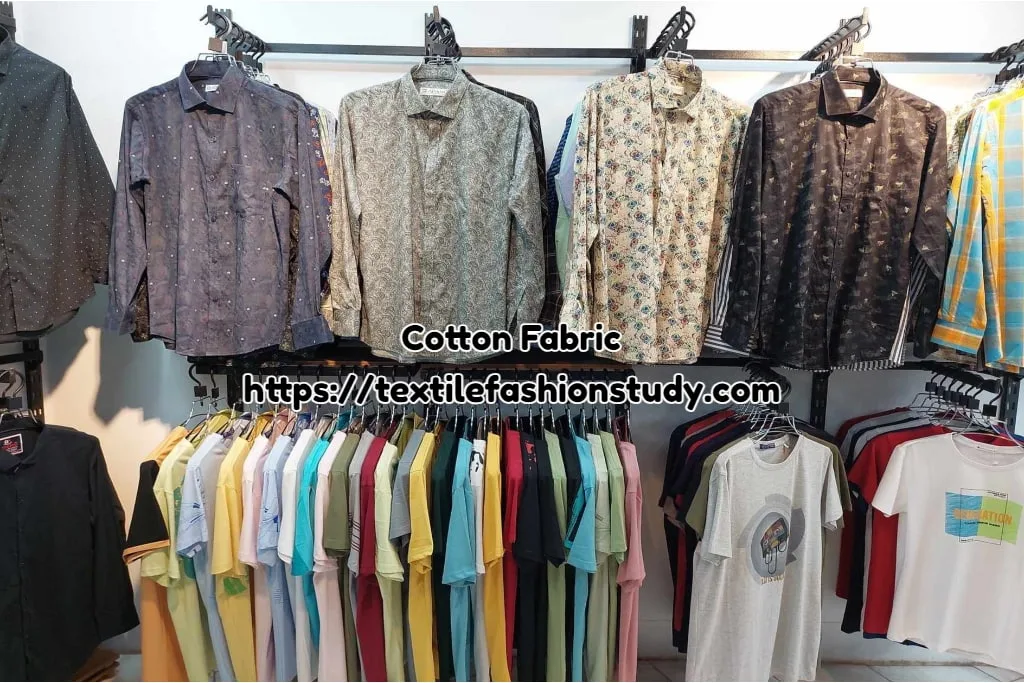
Cotton Blend Fabric
There are different cotton blend fabrics that are produced by blending with other fibers with cotton fiber. They are-
- Cotton silk fabric
- Cotton polyester fabric
- Cotton acrylic fabric
- Cotton viscose fabric
- Cotton nylon fabric
- Cotton spandex fabric
- Cotton rayon fabric
- Cotton bamboo fabric
Cotton Silk Fabric
Cotton and silk fibers are combined to create cotton and silk fabric, which is created through the weaving and knitting processes. The consumer’s preference will determine how much cotton or silk is included in the blend. This fabric combines comfort, breathability, and a hint of elegance. Its wonderful qualities include being soft, lightweight, and having a shiny sheen. However, because this fabric is used to make a variety of apparel items, it requires mild washing and air drying.
Best Cotton Fabric for Dresses
The following garments are made from cotton fabric. They are-
- Pant
- Trouser
- Half Pant
- Quarter Pant
- Travel wear
- Shirt
- Jeans
- Gents &Women Cloth
- Gents Complete Suit
- Winter Dress
- Summer Dress
- Swimming
- Kayaking
- Babies wear
- Sofa, Pillow, Mattress
- Textile items
- Garments
- Fashion Clothing
Importance of Cotton Fabric in Life
Cotton fabric is a natural and versatile clothing item. It has different types of advantages to use in smart life. Now, I like to shortly describe the importance of cotton fabric in smart life.
Uses of Cotton Fabrics in Life
Cotton fabric has huge applications in smart life. The scope of cotton fabric uses is given below.
- Apparel
- Comfortable daily attire
- Undergarments
- Domestic textiles
- Sheets and bedding
- Sportswear and activewear
- Loungewear and sleepwear
- Bathrobes and towels
- Drapes and curtains
Smart textile integration
- Smart clothes with embedded sensors and technology.
- Cotton-based wearable gadgets and fitness monitors.
Cotton Fabric Innovations for Life
- Technology for managing moisture
- The ability to stretch and regain
- UV security
- Antibacterial remedies and odor reduction
- Sustainable and green cotton textiles
Choosing and Caring for Cotton Fabrics Tips
- It must select the cotton fabric of the proper grade.
- It must keep the required washing and care instructions while washing or dry washing.
- Avoiding typical blunders and myths.
Health and Safety issue for Cotton Fabric
- The cotton fabric used should be considered in terms of health and safety.
- Cotton is a natural fiber, and things made of it are likewise natural, but during various dyeing, printing, finishing, and washing processes, this fabric is exposed to diverse colors and chemicals.
- The environment must be assured that cotton cloth won’t pollute it, on the other hand.
- This cloth is widely renowned for its adaptable qualities. Cotton fabric is less expensive than other textiles when the price and advantages are taken into account.
- The goal of wearing clothing is to provide comfort. In such case, cotton is your best option for this type of apparel if you want comfort.
- Cotton clothing has a lower environmental effect than other types of clothing.
So, it is safe and comfortable to use a cotton fabric to enhance life.
Types 0f Raw Cotton
Cotton is used to manufacture the cotton fabric. All of the pieces of cotton have not had the same characteristics. Different types of cotton are used to produce cotton cloth. The following raw cotton is gradually used to manufacture fabrics. The types of raw cotton are described as:
- Short staple: rough cotton suitable for everyday use.
- Long staple: A smoother cotton and softer to wear.
- Extra long staple: A luxurious and soft type of cotton that is comfortable to wear.
- Egyptian cotton: This is the longest fiber cotton and the most luxurious.
- Pima cotton: very hard-wearing durable cotton that is mostly grown in the United States. Egyptian and Pima cotton are scientifically verified and will have undergone tests to prove they are of that high quality and standard.
Types of Weighted Fabric
The weight of the fabric is important to know before manufacturing desired clothing. Weaving design or weave structure effect fabric weight. Depending on the fabric weight fabrics can be classified as
- Thin fabric, and
- Thick fabric
When we think about the fabric weight of the fabric we can consider the dyed and printed cotton fabric. Generally, the weight of the fabric increase after dyeing and printing. Printed fabrics are comparatively higher than dyed fabrics. Generally, a plain t-shirt fabrics gsm falls between 120-180, a printed t-shirt falls between 175-180 while a premium polo weight is 240 gsm, on the other hand, zipper hoodies and non-zipper hoodies weight falls between 310-320 gsm, and heavy weighted fabrics lies between 440 to 450 gsm at times.
The weight of the fabric can be measured based on the GSM of the fabric. Different gsm determine the weight of the fabric. However, we can classify fabric based on the weight as follows. They are-
- Lightweight Cotton Fabric
- Medium Weight Cotton Fabric
- Heavy Weight Cotton Fabric
Light Weight Cotton Fabrics
As I mentioned that the weight of the fabric is measured by the gsm system. There is different weight conversion system but a gsm weight measuring system is preferable. However, when the gsm of the fabric fall between 30 to 150 gsm and it is called lightweight fabric. The following are some examples of lightweight fabric. They are-
- Broderie Anglaise
- Cheese Cloth
- Lawn Cotton
- Muslin
- Poly Cotton
- Seersucker
- Voile
- Shirting Cotton
- Crinkle Cotton
- Madras Cotton
- Silk Cotton
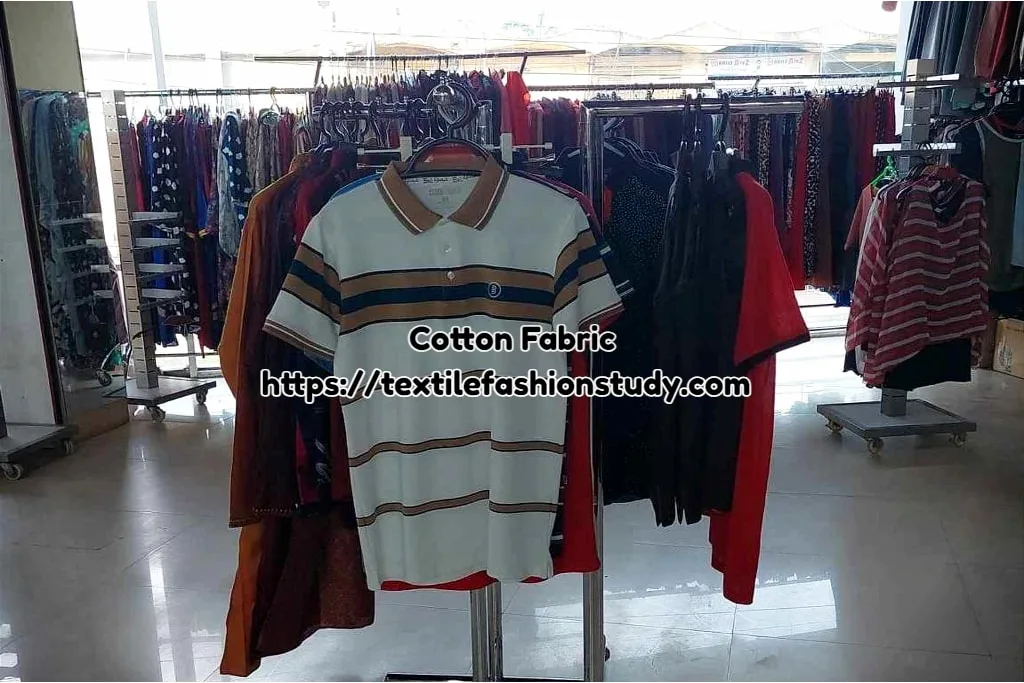
Medium Weight Cotton Fabric
This weighted fabric is fall between the lightweight and heavy-weight fabric. When medium-counted yarn is used to make the fabric then we found medium-weighted fabric. When fabrics are between 150 to 350 gsm, we called that fabric medium-weight fabric. There are different types of medium-weighted fabric. The following are some common types of medium-weighted fabric. They are-
- Jersey
- Linen/Cotton
- Brushed Cotton
- Chambray
- Ticking
- Damask
- Cotton Velvet
- Chino
- Chintz
- Moleskin
- Calico
- Poplin
- Quilting Cotton
- Sateen Or Satin
Heavy Weight Cotton Fabric
Heavy-weight fabric is generally produced by heavier counted yarn. The uses of those types of fabrics are in different household work, in the winter season, or in manufacturing denim fabric. However, when fabric weight is 350 + gsm then it is called heavy-weighted fabric. The following are the common heavy-weighted fabric types. They are-
- Toweling
- Canvas
- Corduroy
- Denim
So, that’s all about different cotton fabric types and their uses to make comfort life.
FAQ for Cotton FABRIC
Which fabric is good for winter?
Answer: Wool, Cashmere, Fleece, Flannel, Thermal knits, and Polar fleece fabric is good for winter.
Which fabric is good for summer?
Answer: Cotton, Linen, Chambray, Rayon, Silk, Seersucker, and Modal fabric is good for summer
Which fabric is good for Swimming?
Answer: Polyester, Nylon, Spandex, PBT, and Neoprene are suitable for swimming.
Which fabric is good for Travel?
Answer: Polyester, Nylon, Merino Wool, Cotton-Linen blend, Modal, and Microfiber are good for travel.
Which fabric is good for Sports?
Answer: Polyester, Nylon, Spandex, Mesh, Bamboo, and Microfiber are good for sports.
What is the ideal cotton fabric Shrinkage percentage?
Answer: 3-5% is considered an acceptable shrinkage percentage for cotton fabric.
What fabric is 100% cotton?
Answer: The fabric containing 100% cotton yarn is called 100% cotton fabric.

